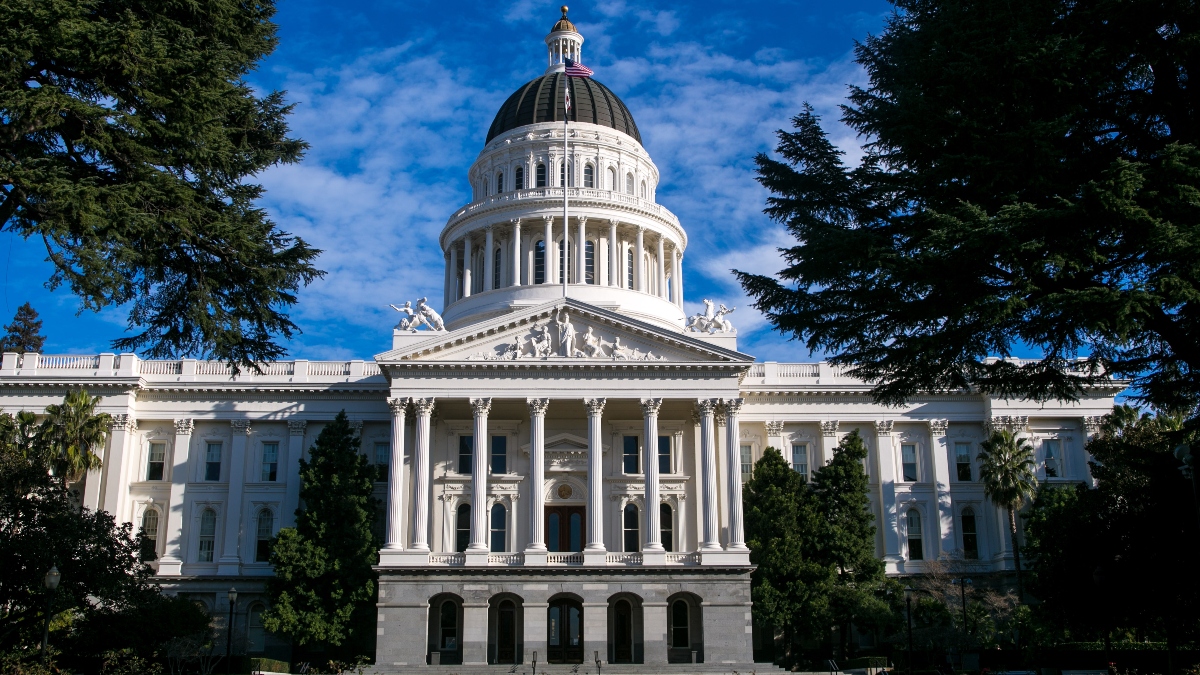The $1.4 billion in projected gross gaming revenue from legal U.S. sports betting this year, the second complete year since the Supreme Court struck down the federal wagering ban, will still amount to just 8% of the estimated $17 billion in annual revenues for offshore sites and unregulated operators.
Speaking at an industry conference Thursday, H2 Gambling Capital director David Henwood said that despite rapid legalization over the past two and a half years, the legal market still is nowhere close to revenues from the sports betting black market, which has been accentuated by booming offshore sites that have served American since the mid 1990’s.
“This is clearly a problem that needs tackling probably on a (multi-state) level rather than at the state level,” Henwood said during the Sports Betting USA digital conference on Thursday. “If it isn't, at the current rate of conversion, in our estimation, it is going to take a decade for the legal market to catch up with its illegal counterpart.”
Online Access, Education Remains Key
A central problem, Henwood said, is that most American bettors are simply sticking with their former providers — many of which they don’t even realize are illegal. He cited an American Gaming Association study that said 74% of respondents believe sports bettors should only bet with legal providers but showed 55% of current sports bettors didn’t know they were wagering illegally.
Continued exposure and more state legalization efforts could help the legal market chip away at the enormous revenue disparity with the offshore market, Henwood said. Legal annual gross gaming revenue (GGR) could reach $6.8 billion by 2024. Assuming as many as 44 states are taking bets at the time, GGR could reach $10 billion by 2030.
Despite its small revenues (compared to offshore options), the legal market is already showing massive progress with only about half of all states taking bets. Legal books took in $2.5 billion in total wagers in September, the most ever for a single month, which was a 75 percent year-over-year increase from September 2019.
To take substantial market share from the offshore sites will mean not just more states with legal wagering, but effective policies nationwide.
Legislative Challenges
Like the hundreds of unlicensed offshore sites that accept sports bets online, the success of the legal market depends on a robust regulated mobile market stateside, Henwood said. Brick-and-mortar books, which make up less than 20 percent of betting handle in mature markets such as New Jersey and Pennsylvania, will continue to see their share of total wagers drop.
To achieve the full market potential, this requires not just online access, but smart policies, reasonable taxes and a competitive market.
This is easier said than done, according to Henwood.
“You've got here a market that is very much operationally and financially in the fast lane and pushing the envelope, so the question really is whether the various state legislatures can keep up with that pace,” Henwood said. “The demand for the market to accelerate financially may highlight some of the current challenges in states where there are a number of stakeholders involved before the market opens up.”
Even in statehouses that largely support legal wagering, there are divides over which entities get that option and how they’re allowed to do it. This divide has stalled legislative action in Ohio and Massachusetts, two larger-populated states that have debated betting bills for the better part of a year, and continues to impact states considering bills in 2021.
Similar complex dynamics are stalling sports betting efforts in California and Florida, the nation’s most and third-most populated states, respectively, which are critical to hitting the high nationwide revenue totals projected by the end of this decade.
Meanwhile states such as Texas, the second-largest state by population, have resisted sports betting legislation due to conservative, anti-gambling opposition entrenched in their respective legislatures. At a separate industry conference earlier this week, representatives from gaming research firm Eilers and Krejcik said anti-gambling sentiment in statehouses remains one of the biggest challenges facing the market’s potential in the years to come.
Potential Remains Bright
Despite these challenges, as many as 23 states and Washington D.C. could be accepting wagers by the end of 2020, a list that encompasses states with both large and small populations and both conservative and liberal political leanings. Industry observers and stakeholders are still optimistic this list could nearly double in the next five to 10 years.
That is because the revenue opportunities are too much for most state legislatures to pass up, Henwood said, especially in light of the COVID-19 pandemic.
Though H2 Gambling is projecting “only” $10 billion in gross gaming revenue by decades’ end based on current trajectories, Henwood said this figure could reach $25 billion, minimizing the offshore market.
This would require multi-operator licensing, optimal tax rates (usually around 10% of GGR) and a full array of bet types and options.
Notably, reaching this figure would also necessitate further adaptation of online casino gaming, which has only been approved by six states so far. Henwood said iGaming helps bring in legal sports bettors instead of cannibalizing revenues and noted that New Jersey has increased online casino revenues by 40% and online poker revenues by 20% since mobile sports betting began in 2018.
In-play betting will also be essential to reach top revenue potential, Henwood said. Live bets, or those placed after a game began, make up just a fraction of the current U.S. betting handle but are roughly 50% of all wagers in European markets. This has allowed them to continue growing despite a plethora of options and decades of service online.
Getting to similar market maturity in the U.S. will likely take years and hinges on not just widespread adoption but sound policy. Still, despite the massive scale of the untaxed offshore market, industry observers believe the nascent regulated sports betting will continue to grow rapidly in America.
“All in all, we’ve concluded (sports betting) is going to be a sizable tax contributor to the U.S. economy over the 2020’s,” Henwood said.



















































